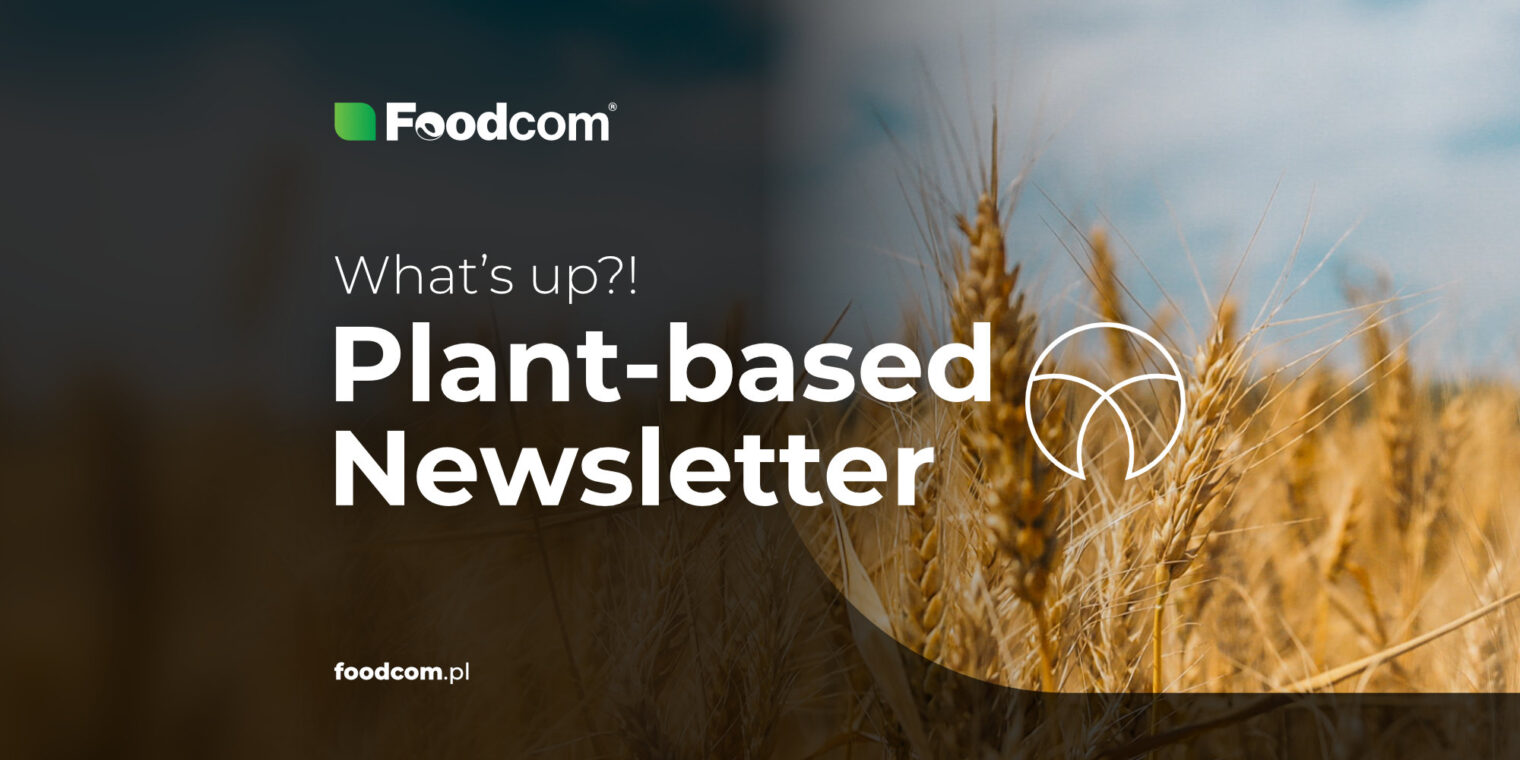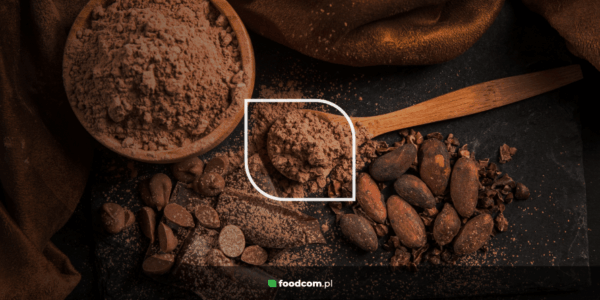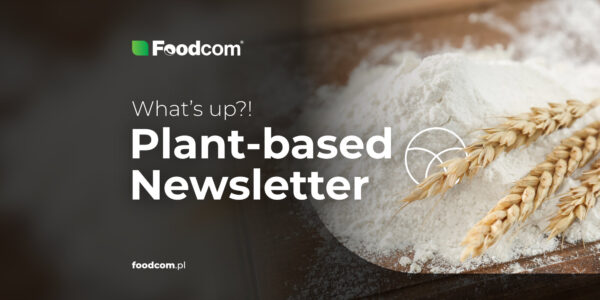It has to be said out loud: the situation on the market for plant-based commodities changes from minute to minute. Sometimes even more frequently. It is easy to get lost in the flood of different, sometimes contradictory information. Fortunately, you have us – the creators of the best Plant-Based Newsletter on the market. In the universe. Well, our fans think so, which means it is, right?
Anyway, we’re coming to you as always (thanks for having us!) with all the news you have to be up-to-date with lately. One of the hottest topics lately is the influx of Ukrainian grain into Europe and the attempts to regulate the situation. Also, in the 33rd Edition of the Newsletter you will read about Native Starches, Proteins, Sweeteners and Modified Starches.
Native Starches
The major paper manufacturers say that not much is happening in their segment at the moment. In their view, there could be significant changes from mid-May. The slow-down mentioned is most likely related to the not-that-great weather and limited travel, which translates into lower demand for cardboard packaging, among other things. However, this does not mean that the market for Native Starches is completely quiet, quite the contrary. We receive inquiries all the time, especially for relatively small quantities, a few trucks at a time. The best offers disappear quickly, leaving other interested parties to make do with what’s left. We see higher demand for exports, local interest is lower. Many are hoping that the recent price cuts will translate into increased demand. It all depends on whether the major supermarket chains will also lower their prices, as suppliers did. Demand for Native Potato Starch and Native Waxy Corn starch is particularly high, although buyers are undoubtedly willing to invest a lot of time to find the most attractive offers.
Proteins
There is some demand for Vital Wheat Gluten, with inquiries coming mainly from North America and far Western Europe. In any case, buyers want lower and lower prices. Aqua feed producers are apparently just waking up from their hibernation, and there are many inquiries from pet food manufacturers, which is typical for the current time of the year. The demand for Corn Gluten Meal is high, inquiries are coming primarily from aqua feed and pet food manufacturers. Some buyers expect ridiculously low prices. There are significant differences between the cheapest and the most expensive offers currently available. There are again requests for Potato Protein, especially for small quantities.
Sweeteners
Sugar is very popular. No wonder because who does not want to sweeten their life a little these days, right? Demand for Chinese Dextrose has slowed, while interest in the raw material from Europe is growing instead. The latter has recently become cheaper, which has led to increased demand. There are also inquiries for European Dextrose from buyers who previously turned to Chinese raw material but seem to have decided to return to the familiar European one. There is also a strong demand for Sorbitol.
Modified Starches
There are shortages in the market for both E1442 and E1414. This is true for both the potato-derived variety and waxy corn. In these extreme times, starches used in extreme temperature processes have undoubtedly been selling like hotcakes. Demand for E1422 is still there. Buyers expect lower prices, but they are not coming down due to the shortage of Native Waxy Corn Starch.
What else?
Europe
March, a record month for Ukrainian sunflower oil exports
In March 2023, Ukraine exported 524 000 tons of sunflower oil, which is not only an increase of 29% compared to February this year, but most importantly, it is the highest monthly value since February 2022. All current forecasts indicate that these results will be lower than the record March figure in subsequent months, mainly due to the decline in world prices.
Eastern European countries are asking the European Commission to intervene
The idea is to impose tariffs on Ukrainian grain imports. Farmers from Poland, the Czech Republic, Romania and Slovakia want to work out a joint position on grain from Ukraine. Representatives of the governments of these countries argue that a revision of tariffs is the only way to distribute Ukrainian grain evenly in Europe and, as a result, stabilize the grain market on the continent.
You know how lab-grown meat and feed ingredients have not yet been introduced on a large scale?
Well, Italy has already decided to ban them. The government has passed a bill banning lab-produced food and feed. The reason given is to protect the country’s agricultural heritage. If the bill is approved by parliament, it will be impossible to produce food or feed from cells. It is expected that the possible fines will be up to 60 000 euros.
The Americas
More U.S. corn and soybeans on the market?
U.S. farmers want to plant more corn, soybeans and wheat. According to experts, this may not be easy to accomplish due to difficult weather conditions. The seeding situation is particularly difficult in some northern U.S. states. At the same time, many believe that an increase in U.S. production of soybeans, wheat and corn is necessary given the current situation related to the war in Ukraine. Higher harvests are needed to stabilize the situation and mitigate the effects of the crisis.
Latin America faces a wheat problem
Latin America is a region that has traditionally relied on large amounts of imports to meet its wheat needs. As a result, it has been hit hard by recent increases in food prices, pressure on supply chains, and changes in trade patterns. To make matters worse, Argentina, South America’s top wheat producer and exporter, is expected to harvest a much smaller crop this season due to the worst drought in decades. As a result, Central America will have to rely more on locally grown wheat, which on average contains less protein than imported wheat.
The U.S. orange crop is expected to reach its lowest level in 86 years
Current forecasts predict this year’s U.S. orange crop will be the lowest since 1937. Production peaked 25 years ago and has steadily declined since. However, there is no denying that the decline in the main producing state of Florida is particularly sharp this year. As a result, imports of oranges and orange juice have increased.
Asia & Oceania
Sugar in India will soon become more expensive
The latest data shows that sugar prices in the Indian domestic market have already been rising recently, and the upcoming ice cream and sweet beverage season is sure to push prices even higher. In addition, current forecasts indicate that sugar production will fall by 10% year-on-year, which will also impact commodity prices. Not very sweet news for consumers in India, that’s for sure.
Malaysia and China sign oil partnership
Malaysia, one of the world’s largest palm oil producers, and China, one of the world’s largest buyers, have signed an agreement aimed at stabilizing the palm oil supply chain. The overall aim is to increase trade and cooperation in palm oil. As part of the cooperation, new technologies, such as artificial intelligence, will be developed and applied in palm oil plantations.
Bangladesh’s farmers are in dire straits
The country’s agricultural sector is under severe pressure as crop costs skyrocket due to the global economic situation and predicted torrential rains and floods, which usually occur in the summer and damage crops. Many farmers were already affected by high-interest loans and have now taken on even more debt as they try to deal with the economic crisis not seen in years. Experts indicate that the plight of farmers could have a particularly large impact on the rice harvest.



![WPI Market Overview 2026 [Global Report] WPI Market Overview 2026 [Global Report]](https://foodcom.pl/wp-content/uploads/2025/03/Global-Report-szablon-pod-bloga-600x300.png)




